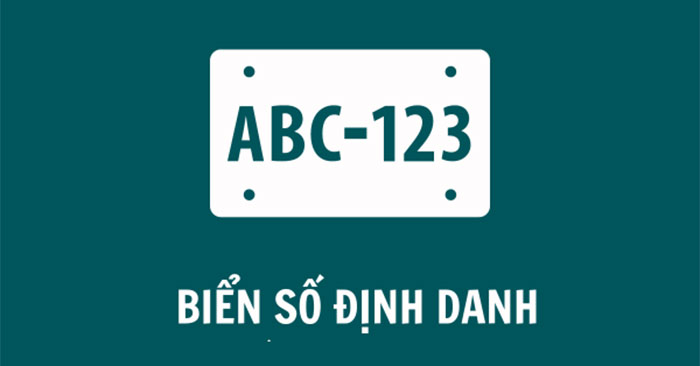
Circular 24/2023/TT-BCA by the Ministry of Public Security states that starting from August 15, vehicles without official owners with 05-digit license plates will display the name of the registered owner on their identification number plate.
At present, numerous individuals are purchasing pre-owned motorcycles that come equipped with license plates and vehicle registration, but they have not yet finalized the title transfer procedures. However, under new regulations, those who buy or sell used vehicles will only receive the vehicle itself, without the license plate or registration certificate. This development has raised concerns among many individuals regarding car ownership after August 15th.
How can one handle vehicles that are not owned by anyone?
In order to comply with regulations, it is necessary to follow the title transfer procedures when purchasing or selling used cars. Individuals who are using vehicles without proper ownership will face penalties. The required documents for transferring vehicle ownership include a vehicle registration declaration that clearly specifies the purchase and sale details, as well as a commitment to assume legal responsibility for the vehicle’s origin. Additionally, the documents should include the transfer of ownership from the previous owner to the final seller, if applicable. It is also important to pay the registration fee during the transfer process.
After August 15, there will be two scenarios when the title of a car, which is not officially owned, is changed by the owner.
Initially, an administrative penalty will be imposed if any sales and purchase documents are still present. Following that, the registration process for transferring ownership will be initiated.
If there are no longer any sales documents, the police will need to make a public notice for 30 days. Following this, they will send a notice to the person listed on the vehicle registration. Once there are no complaints, the police will issue an administrative penalty decision and proceed with the necessary steps to transfer the name.
According to Circular 24, starting from August 15, individuals selling a car must return the registration and license plate to the police within 30 days for recovery purposes, rather than handing them over to the new owner. Failure to comply with this requirement may result in fines ranging from 800,000 to 2 million VND for motorbikes and 2-4 million VND for cars. Organizations found violating this rule will face double the amount of fine.
If the car is sold without the title being transferred, the car owner will be held responsible in the event of an accident. During the verification and investigation process, the police will collaborate with the original vehicle owner. Therefore, it is important to adhere to regulations and change the ownership when transferring, buying, or selling a vehicle to prevent any potential legal issues.

What does the term “identification number plate” mean?
Starting from August 15, as stated in Circular 24/2023 issued by the Ministry of Public Security, identification number plates, which serve as license plates for cars and motorbikes, will be issued and managed based on the vehicle owner’s identification code.
The current system of managing license plates is based on the personal identification code of the owner, but license plates are still issued using the current process and do not incorporate personal identification codes.
Identification plates are not required for license plates with 3 or 4 digits currently in use. Similarly, 5-digit plates registered prior to the effective date of the circular will automatically be considered as identification number plates.
The police will replace both the 3-digit and 4-digit plates with 5-digit plates for better management, based on the personal identification of the plate’s owner, if necessary. There is no limit to the number of identification number plates a person can have. You can own multiple identification number plates if you have multiple cars and motorcycles.
Starting from August 15th, license plates will now be tied to individuals. For instance, Mr. A will be assigned a license plate based on his personal identification code. If Mr. A decides to sell his vehicle, he can only sell the vehicle itself, as the license plate and registration need to be surrendered to the authorities. When Mr. A purchases a new car, the police will utilize his previous license plate to register his new vehicle. Therefore, when registering his new car, the police will only need to document the new chassis number and engine number, while the license plate remains unchanged.
The license plate will be held for the vehicle owner for a period of 5 years starting from the date of recall. Once this time frame has expired, the license plate will be transferred to the number warehouse in order to be registered for another vehicle.
What is the importance of managing identification number plates?
Effective management of identification number plates will greatly facilitate the handling of violations. This is particularly important in situations where car owners sell their vehicles along with the license plates, making it challenging to verify the recipient and consequently send out violation notices.
Furthermore, overseeing identification plates simplifies the process of integrating documents into the VNeID application.
Starting August 15, registration certificates and license plates of 8 cases will be revoked.
As per Article 23 of Circular 24/2023/TT-BCA, the following instances warrant the cancellation of vehicle registration certificates and license plates:
- The vehicle is damaged and cannot be used or is destroyed due to objective reasons.
- The vehicle has expired and is not allowed to circulate according to the provisions of law.
- If the vehicle is stolen, misappropriated and cannot be found, or the vehicle is abandoned, the vehicle owner requests revocation of the vehicle registration certificate and license plate.
- Tax-free imported vehicles or temporarily imported vehicles of foreign agencies, organizations, and individuals for re-export, transfer of ownership, or destruction.
- Vehicles are registered in economic zones according to Government regulations when re-exported or transferred to Vietnam.
- Vehicle registration procedures are transferred and moved.
- The vehicle has its engine and frame removed to be registered to another vehicle.
- The vehicle has been registered but it is discovered that the vehicle records are fake or the vehicle has a conclusion from a competent authority that the engine number or frame number has been cut, welded, re-chiseled, erased or the license plate has been issued incorrectly.


